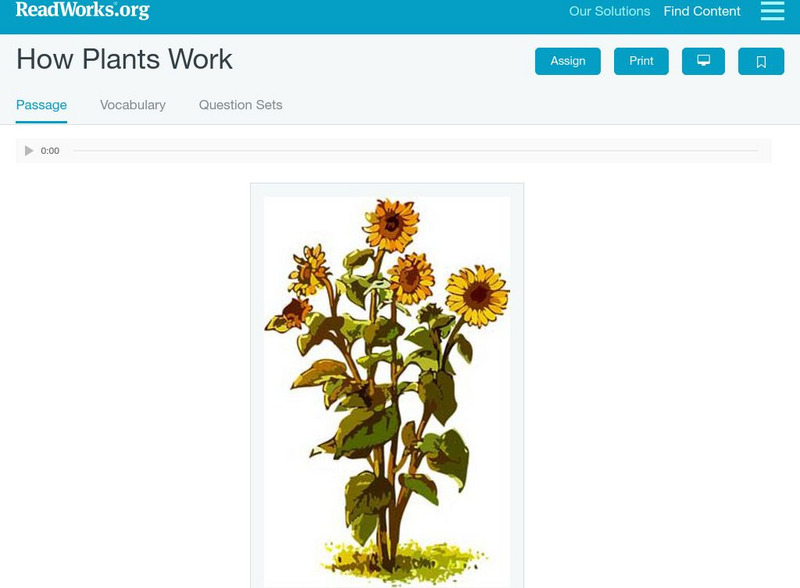DiscoverE
A Clever Way to Water
Your plants will survive without you. Scholars create a device that can water plants using a coiled string. Along the way, they learn about adhesion and cohesion of water. The challenge is to keep the plants alive for at least a week.
New South Wales Department of Education
Plant Features
Pine needles are actually modified leaves. In the 16th installment of 20, young scientists explore plants. Through an analysis of leaves — shape, veins, and edges — pupils see how to classify plants based on structural features.
New South Wales Department of Education
Plant Groups
Bryophytes can grow in temperatures just above zero degrees. This 17th installment in a series of 20 introduces learners to the five groups of plants: algae, bryophytes, pteridophytes, gymnosperms, and angiosperms. Classes then explore...
New South Wales Department of Education
History of Plant Classification
Bamboo, the fastest growing plant in the world, can grow up to 35 inches in one day! Pupils learn how plants historically have been classified and determine if these traits are appropriate to use in this 17th lesson of 20. They will also...
Read Works
Read Works: How Plants Work
[Free Registration/Login Required] An informational text about the different parts of a plant: the leaves, stem, roots, and flowers. A question sheet is available to help students build skills in reading comprehension.
University of Illinois
University of Illinois Extension: The Great Plant Escape
Inspector LePlant and his friends look at the world of plants in this site for younger students. Features include the parts of plants and the seven basic requirements that plants need to survive as well as a short quiz.





